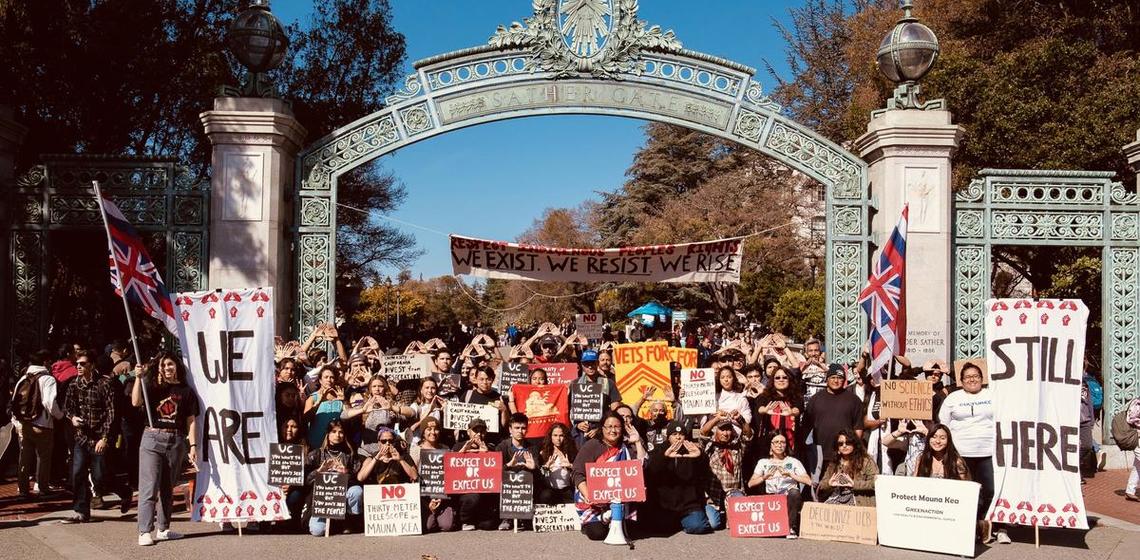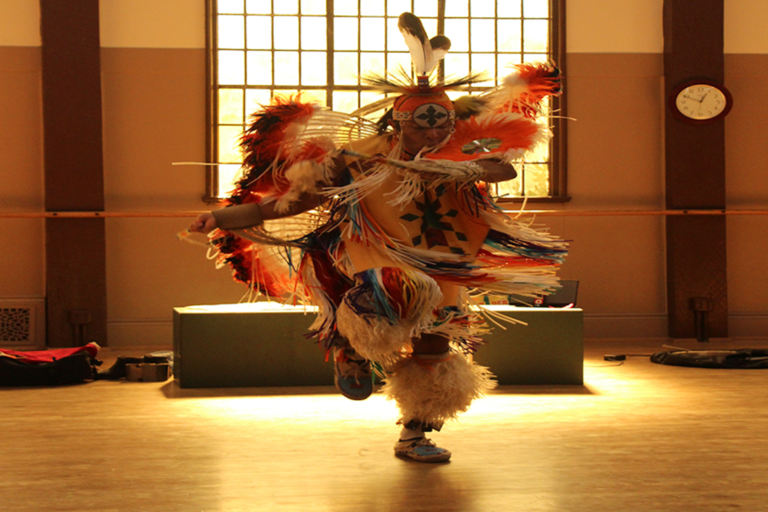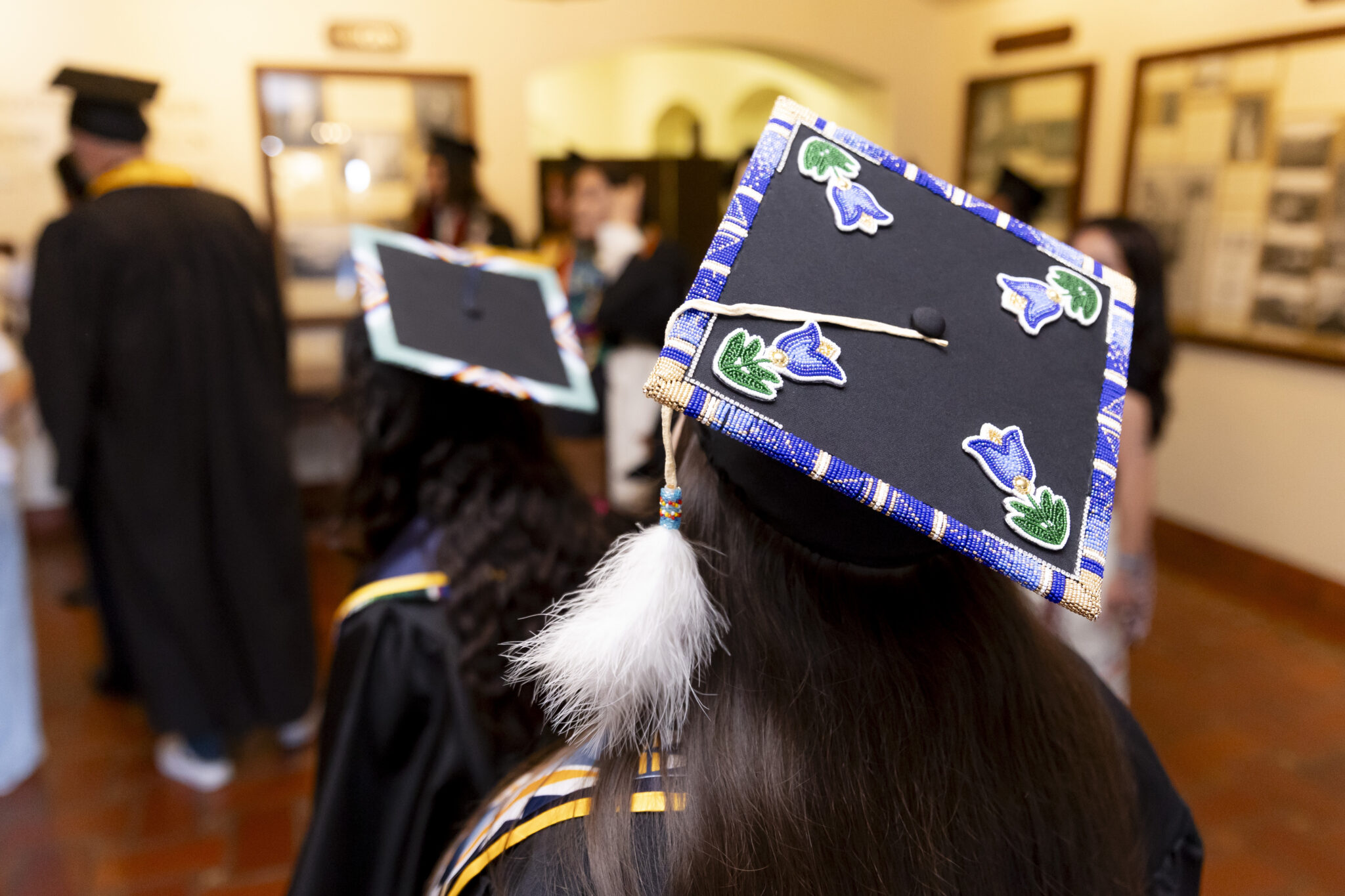March 02, 2026
4:00 PM – 6:00 PM
In Person

The American Indian Graduate Program (AIGP) is open to all UC Berkeley community members, regardless of race, color, national origin, ethnicity, age, gender, gender identity, sexual orientation, disability, religion, or any other protected class status. UC Berkeley is committed to fostering an inclusive environment that welcomes participants from all backgrounds.
AIGP promotes an intersectional approach to indigeneity. We ensure that graduate students are encouraged and supported in bringing Indigenous perspectives to their research, integrating diverse ways of knowing and inclusion of Indigenous methodologies and concepts of tribal stewardship, and enriching the diversity that defines the Berkeley graduate community.
AIGP assists graduate students throughout their academic career, providing 1:1 support, and connecting students with campus organizations and resources.
Be a part of the community — contact Skye Fierro, AIGP Coordinator at [email protected] to learn more.
Where to Find AIGP
AIGP Office
Inclusive Excellence Hub (2515 Channing Way)
Berkeley, CA 94720-5900
Contact AIGP
Skye Fierro, AIGP Coordinator
Email: [email protected] and [email protected]
If you are considering graduate study with UC Berkeley, make a one-on-one appointment with one of our AIGP Diversity and Community Fellows, Hannah Arthur, Deibi Sibrian, or Anna Macknick.
A number of organizations exist on campus enabling all students, including Native and Indigenous students, to build community. Native American Student Development lists additional opportunities.
The IGSA (formerly known as AIGSA), is dedicated to bringing Native and Indigenous identifying graduate students together from across campus. Through academic, social, and outreach events, IGSA works towards strengthening the Native American/Indigenous student community on-campus and beyond.
AISES supports graduate students pursuing a STEM degree by building a community in collaboration with other groups.
NALSA is a community devoted to seeing Native people represented in the law, and the law working on behalf of Native people.

Through AIGP-sponsored and campus partnership events, we help foster excellence in mentoring leadership at all levels of educational engagement and diversity. AIGP provides graduate students access to Native American events, workshops, seminars, and programming with faculty, graduate fellowship students and Native American professionals engaged in professional careers or research at UC Berkeley.
March 02, 2026
4:00 PM – 6:00 PM
In Person
March 03, 2026
5:30 PM – 7:00 PM
In Person
March 05, 2026
11:30 AM – 3:30 PM
March 10, 2026
1:00 PM – 3:00 PM
In Person
March 19, 2026
11:30 AM – 3:30 PM
April 08, 2026
11:30 AM – 3:30 PM
UC’s Native American Opportunity Plan (opens in a new tab) ensures that in-state system-wide tuition and student services fees are fully covered for California students who are also enrolled in federally recognized Native American, American Indian, and Alaska Native tribes.
To be eligible for the Native American Opportunity Plan, students must be a current or newly admitted UC undergraduate, graduate or professional school student enrolled in a qualifying UC degree program; a California resident; and an enrolled member in a federally recognized Native American, American Indian and/or Alaska Native tribe. Details about this program can be found on UC Berkeley’s Financial Aid & Scholarships NAOP (opens in a new tab) page.
If you think you qualify or have questions, prospective and current students are encouraged to contact the AIGP Coordinator at [email protected] and [email protected]. AIGP is also available to assist with seeking additional external awards.
Additional details and frequently asked questions provided by UC Berkeley’s Financial Aid and Scholarships Office and UCOP
AIGP provides direct one to one mentorship for students and can assist in helping develop additional programs and resources that support the graduate student experience.
AIGP assists in removing barriers at UC Berkeley and coordinating campus resources that include faculty, staff and administrators who provide support in different areas of graduate education, from enrollment, student services, policy and research and teaching support.

AIGP centralizes and connects graduate students with resources and programs supporting and enhancing the Native/Indigenous student experience, and creating community among all graduate students across campus.
Finding the resources to support your academic journey at Berkeley can be stressful. AIGP is a part of the Office for Graduate Diversity which provides support and resources for all students, including but not limited to those who are Native, Indigenous, undocumented, first-generation college students, and those who are educationally and financially challenged.